All products featured are independently chosen by us. However, SoundGuys may receive a commission on orders placed through its retail links. See our ethics statement.
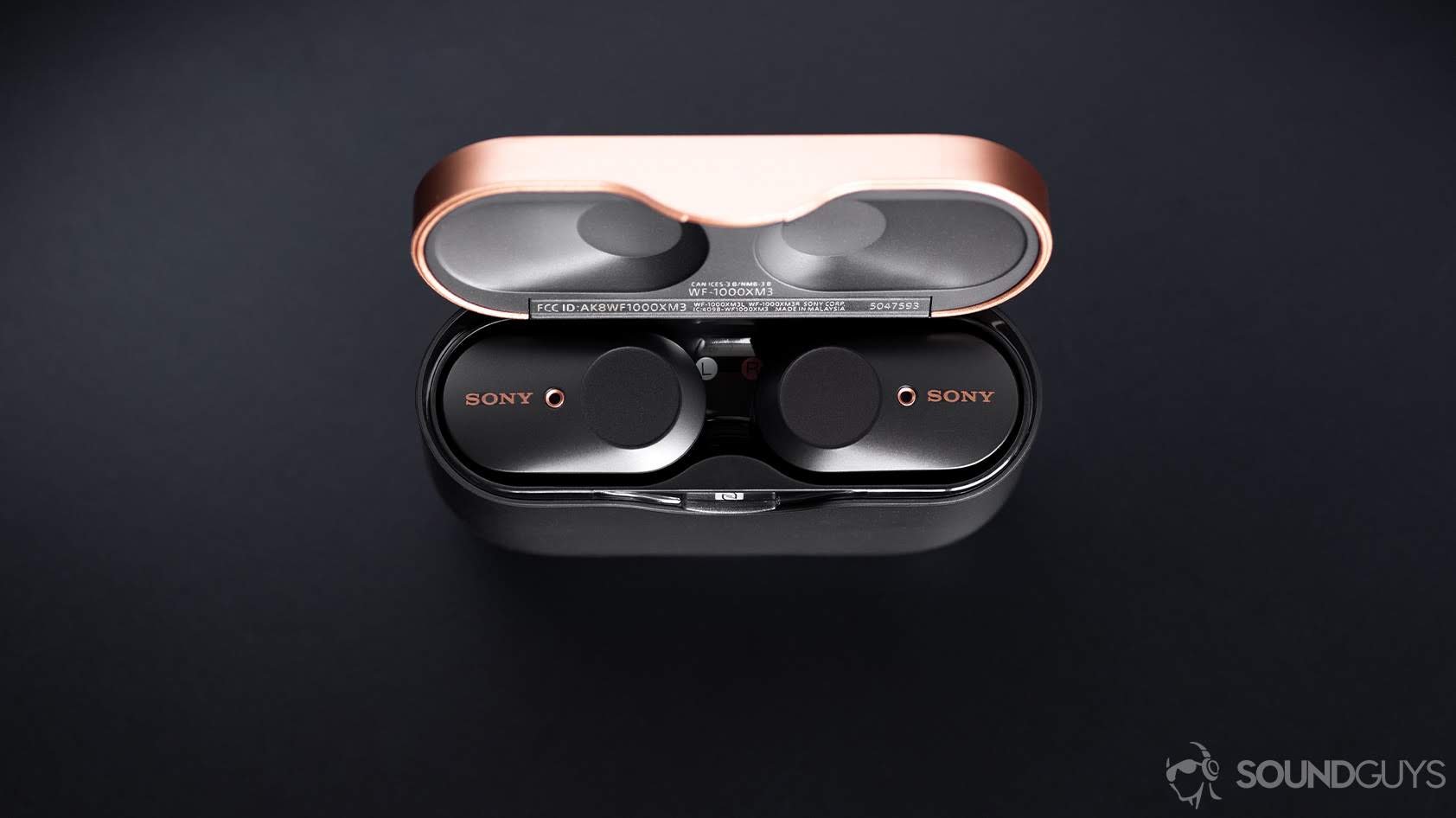
Sony WF-1000XM3 review
August 30, 2023
Sony WF-1000XM3
Sony has plenty of experience making great headsets, and upon its release, the Sony WF-1000XM3 was good enough to make the AirPods Pro sweat. While the WF-1000XM3 is showing its age, especially next to its younger brother, the Sony WF-1000XM4, the XM3 remains a great headset. It shares many of the same features as the company’s latest flagship earphones for almost half the price.
We initially spent two weeks with the WF-1000XM3 so we could tell you all about what’s good, great, and only okay. Since the Sony WF-1000XM3 has been twice superseded in its lineup, expect to see this model on clearout in the very near future.
Editor’s note: This Sony WF-1000XM3 review was updated on August 30, 2023, to reflect the product’s upcoming discontinuation and again on August 23rd, 2024, for formatting.
Listeners enticed by the Sony WH-1000XM3 or Sony WH-1000XM4 noise canceling capabilities will enjoy these true wireless earbuds but need a compact form factor. It’s as portable as ANC technology gets and rests comfortably thanks to the ergonomic three-point fit and non-slip rubber nozzle. General consumers who don’t mind paying a premium for something premium. These handily outperform the AirPods (3rd generation); plus, they’re a bit cheaper than the latter. Not sweaty listeners. These earbuds offer zero sweat resistance; they don’t even have a nano-coating to wick water away. If they malfunction, you’re stranded without a paddle, so if you intend to exercise with them, you may want dedicated workout earbuds instead.
What’s it like to use the Sony WF-1000XM3?
Let’s start by judging a book by its cover: whether you go for the silver or black version, these earbuds radiate sophistication. The understated design exudes Sony’s confidence in its latest product. The pill-shaped earbuds have three contact points designed to distribute pressure along the outer ear comfortably. These are by far and away some of the most comfortable earbuds I’ve worn when paired with the default ear tips.
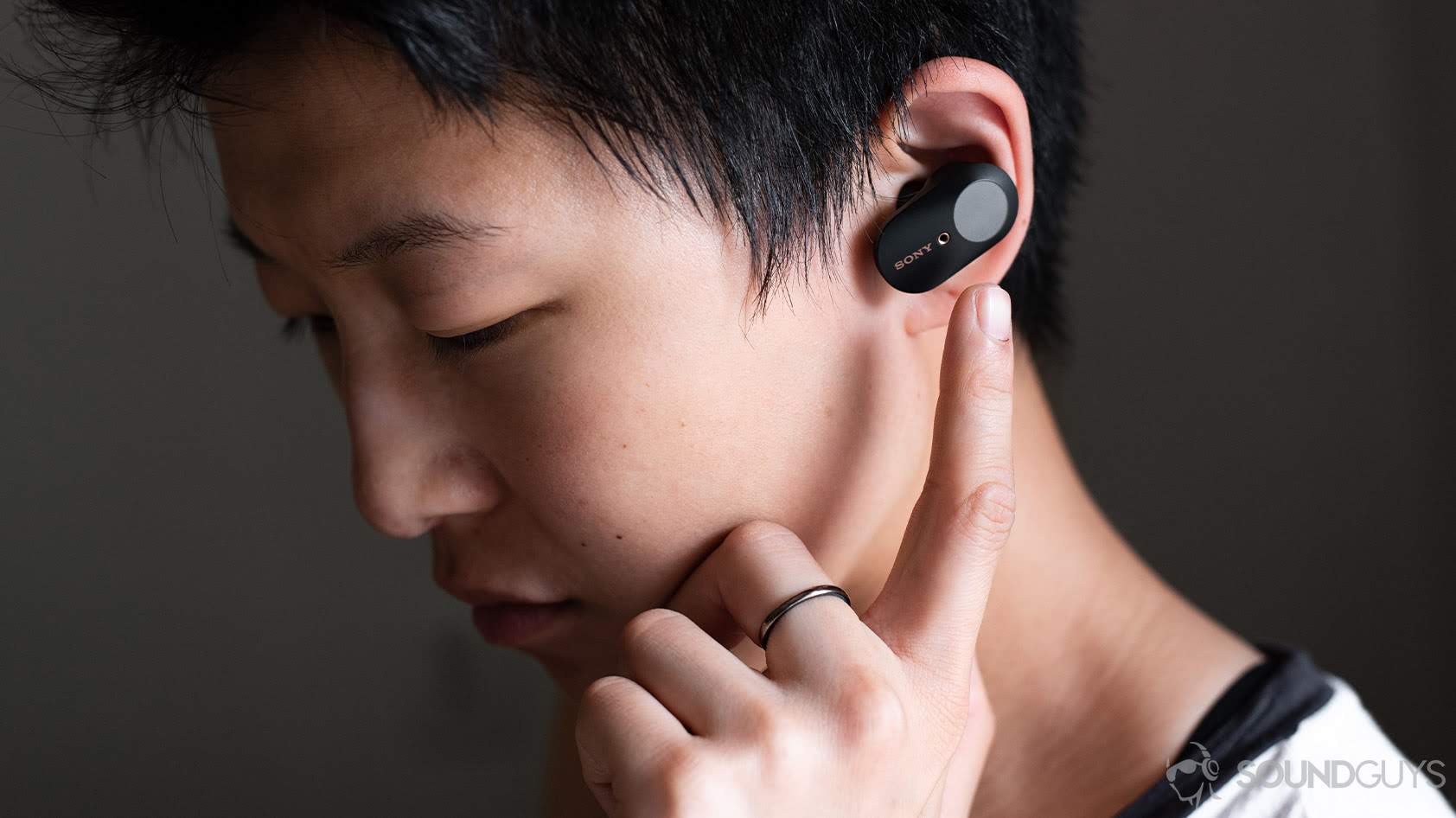
Under the hood, the earbuds use a dual-microphone array to combat external noise. This updated system is far more effective than the company’s WF-SP800N noise canceling earbuds, but that isn’t saying much. The WF-1000XM3 also features a QN1e processor. This facilitates 24-bit audio signal processing while acting as a DAC. Sony claims this also improves energy efficiency, meaning you get to enjoy extended listening times.
Like its over-ear sibling, you can enter a conversation immediately without removing the earbuds. Holding a finger over the left earbud decreases the volume and allows ambient noise through. It works, but I feel rude doing that rather than just removing an earbud. After all, the earbuds support automatic ear detection, something we’ve seen in the AirPods (3rd generation), Samsung Galaxy Buds Pro, and Beats Powerbeats Pro. This allows the proximity sensor in each earbud to detect insertion and removal, thereby playing and pausing music accordingly. I prefer this method over the Galaxy Buds’: you only need to remove one of the Sony earbuds to automatically pause playback, whereas Samsung’s earbuds require you to remove both simultaneously.
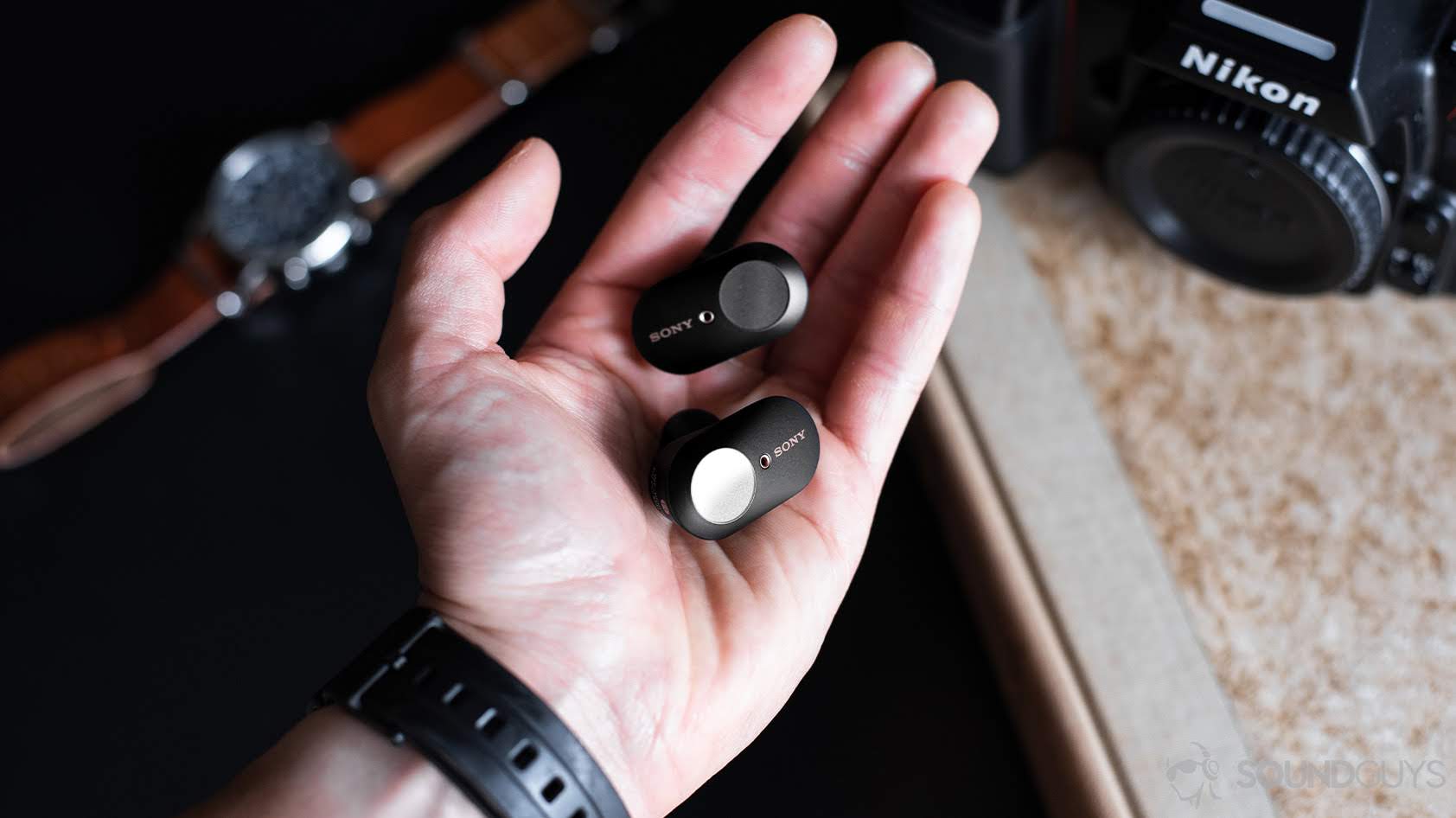
While the charging case’s design is classy, it’s also stocky. Like many competitors’ charging cases, Sony’s features a magnetic interior that secures the earbuds onto the charging pins. The case itself doesn’t require much effort to open. Certainly, newer manufacturer offerings scale back the size in comparison.
How do you control the Sony WF-1000XM3?
| INPUT | ACTION (left bud) | ACTION (right bud) |
|---|---|---|
| INPUT ONE TAP | ACTION (left bud) ANC/Ambient/Standard listening mode | ACTION (right bud) Play/pause |
| INPUT TWO TAPS | ACTION (left bud) | ACTION (right bud) Answer/end call |
| INPUT TAP AND HOLD 7 SECONDS | ACTION (left bud) Bluetooth pairing | ACTION (right bud) Bluetooth pairing |
Touch controls are accessible from either earbud. By default, double-tapping the left earbud alternates between noise canceling and ambient sound modes, while double-tapping the right earbud skips tracks. You can program the controls to summon your voice assistant of choice—whether it be the Google Assistant, Amazon Alexa, or Apple’s Siri. Feel free to remap these functions using the Sony Headphones Connect app.
Is the Sony Headphones Connect app necessary?
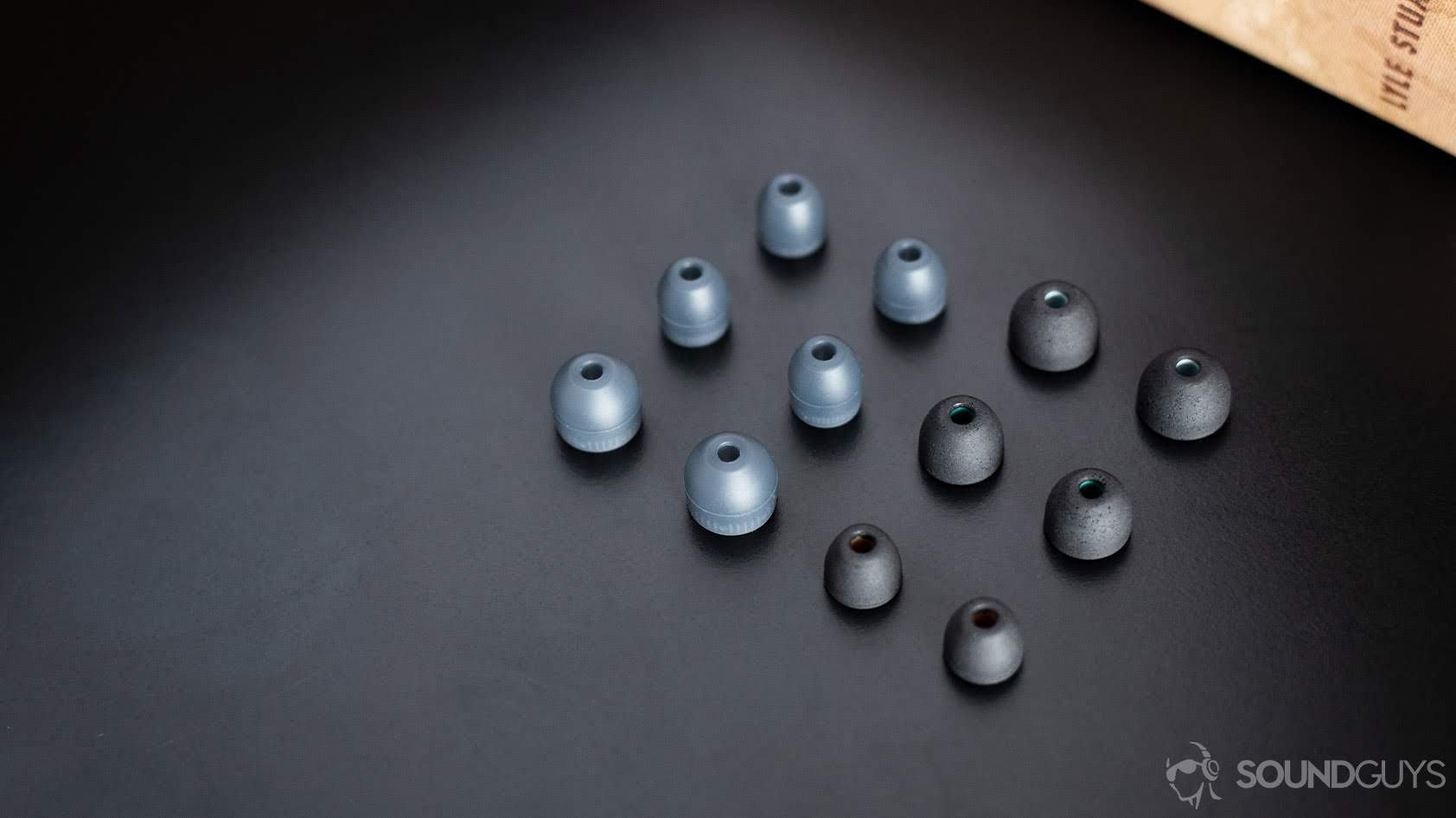
The earbuds will function without the Headphones Connect app (iOS/Android). However, you’ll need to download it if you want to EQ the sound, customize controls, or make other adjustments. One of the worthwhile features it supports is adaptive sound control. This automatically modifies ambient sound settings to your environment. For instance, if you’re in an airport, ANC may be increased, whereas it may be decreased in the quiet of your own home.
How do you connect the Sony WF-1000XM3 to your smartphone?
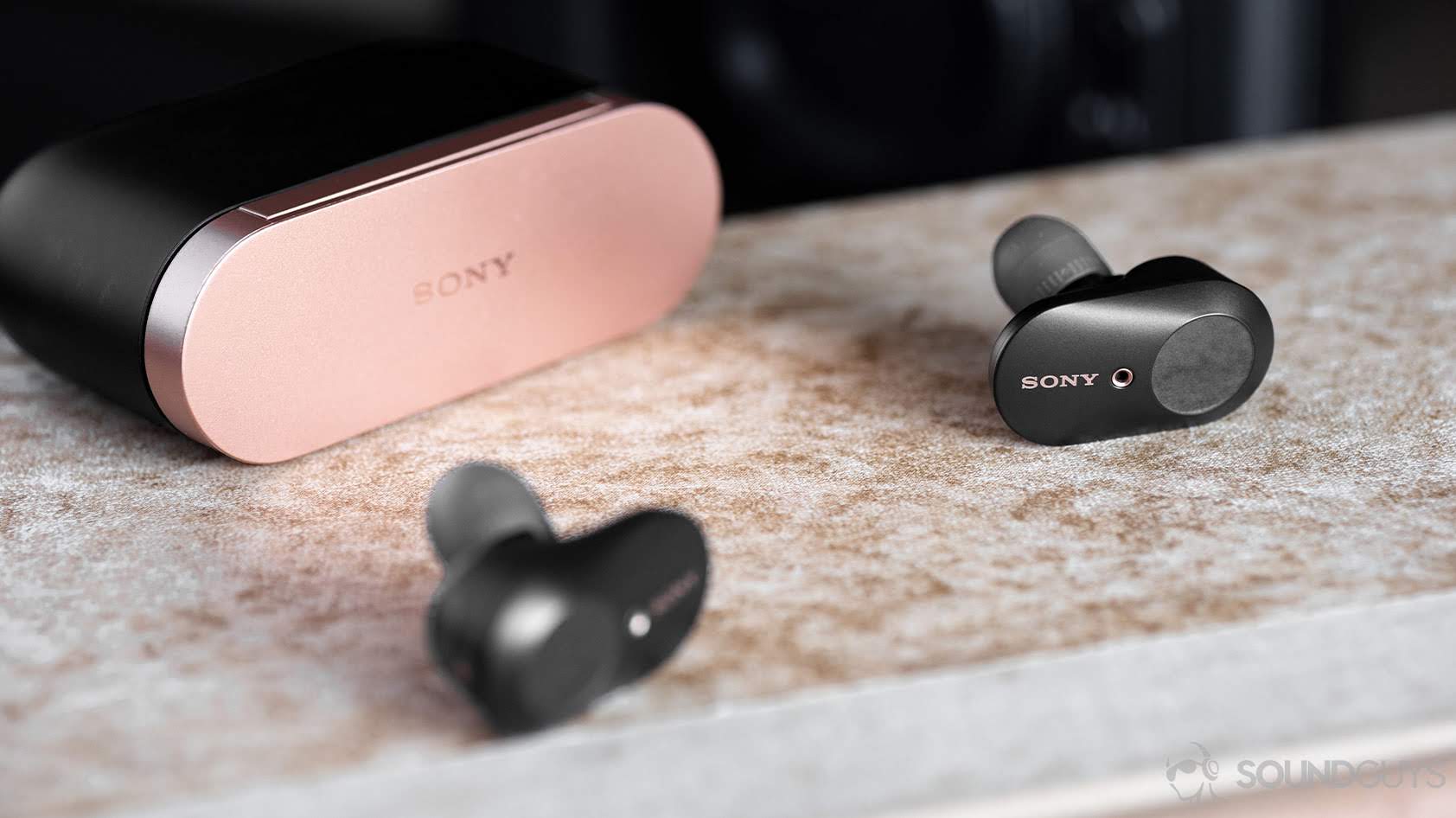
You can pair the Sony true wireless earbuds via NFC or the traditional Bluetooth pairing method. Either works perfectly fine. The earbuds operate via Bluetooth 5.0 and support a 10-meter wireless range. Generally speaking, connection strength is impressive, perhaps due to the new antenna placement within each housing. You can’t connect to more than one device simultaneously, though.
The curious case of Bluetooth codec support is perplexing: AAC and SBC are supported, but neither is Sony’s own LDAC nor any of the aptX codecs. However, DSEE HX functionality upscales compressed audio files, somewhat explaining the omission.
Editor’s note: Previously, DSEE HX functionality would not work when EQ settings were active. However, thanks to the latest update (Version 3.0.0.), you can now use DSEE HX and EQ simultaneously.
How long does the battery last on the Sony WF-1000XM3?
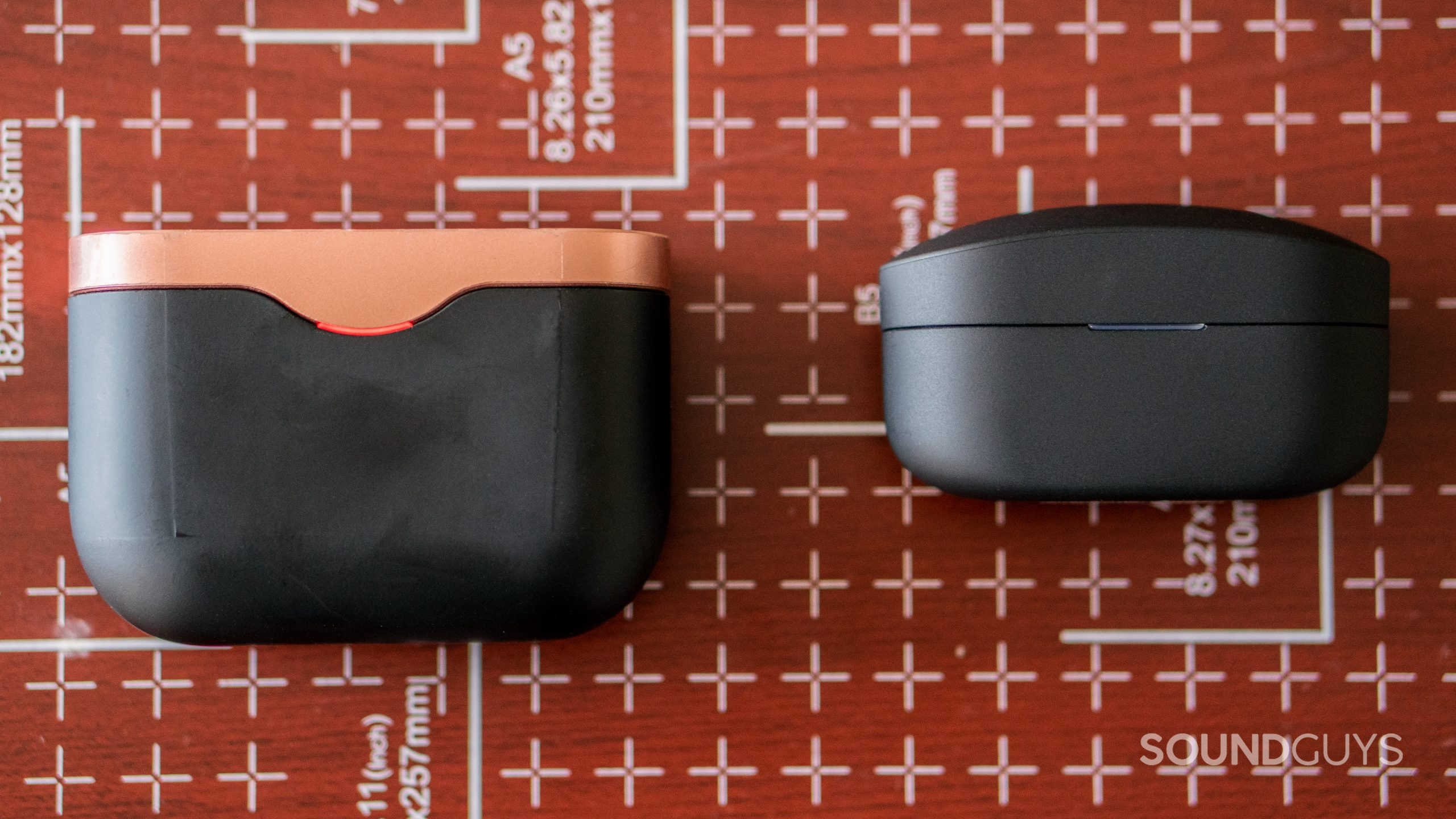
According to our objective testing, the earbuds allow 4 hours and 46 minutes of constant playback with noise canceling. The earbuds support quick charging: 10 minutes affords 90 minutes of playback, which is great for long plane rides. Once the earbud batteries are fully drained, it takes 90 minutes to complete a charge cycle and 3-4 hours to fully charge the case, which provides an additional three charges to the buds. Like the Sony WH-1000XM3, the WF-1000XM3 case uses a USB-C cable for charging.
No, the WF-1000XM3 case does not support wireless charging.
Is the noise canceling any good on the Sony WF-1000XM3?
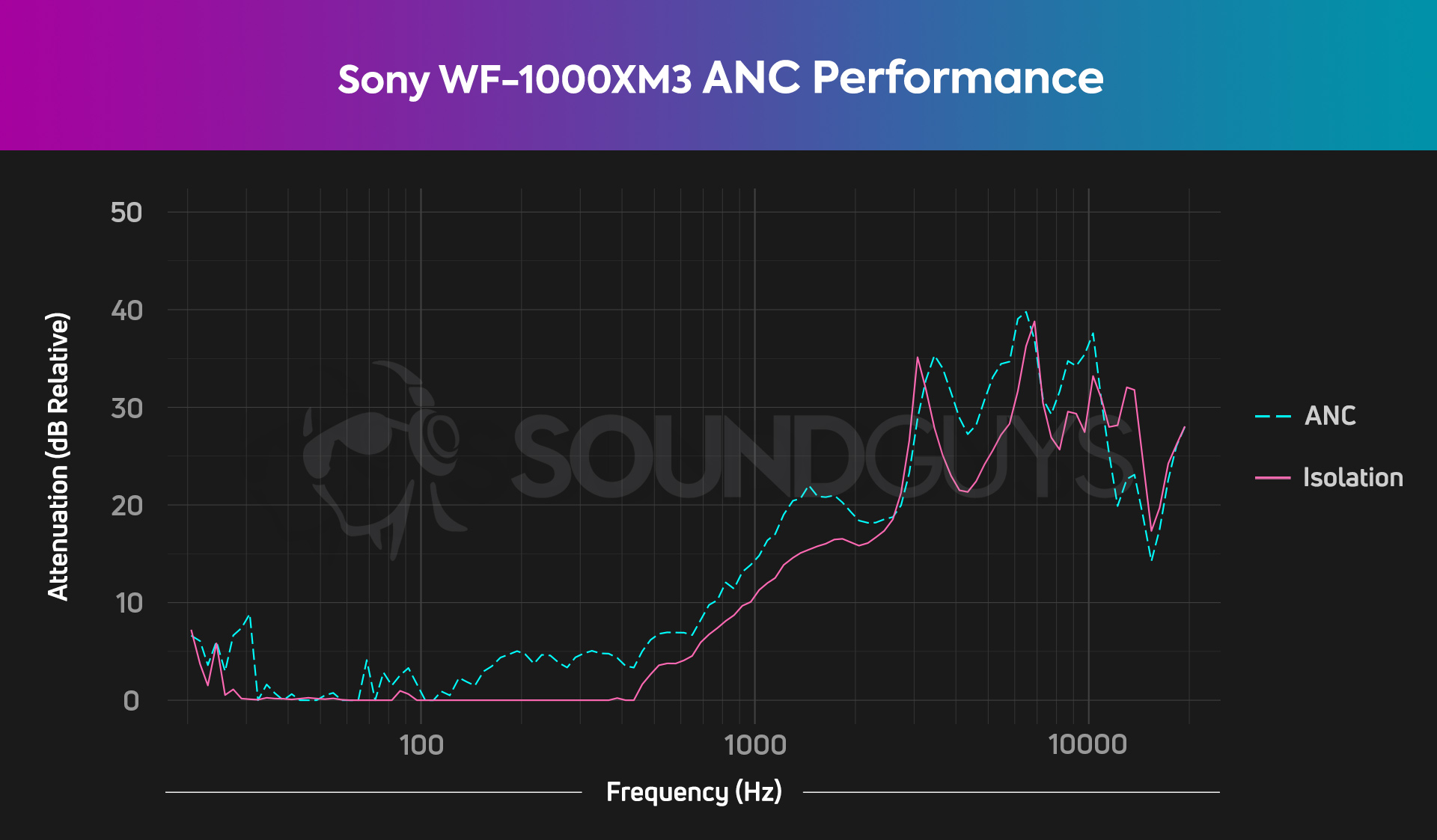
The earbuds have average passive isolation and just okay active noise canceling. When you get a good fit with the ear tips, frequencies above 1kHz will sound anywhere from one-third to one-sixteenth as loud as they would without the earbuds. Though, this kind of performance requires you to sample the ear tips to get the best fit. Doing so will also maximize the so-so ANC performance.
You won’t notice a big difference when you toggle ANC on/off and might as well get something more affordable and effective like the Samsung Galaxy Buds 2. When the WF-1000XM3 debuted, it was among the best noise canceling wireless earbuds, but alternatives from Sennheiser, Bose, and Jabra have since surpassed the ANC on the WF-1000XM3.
How does the Sony WF-1000XM3 sound?
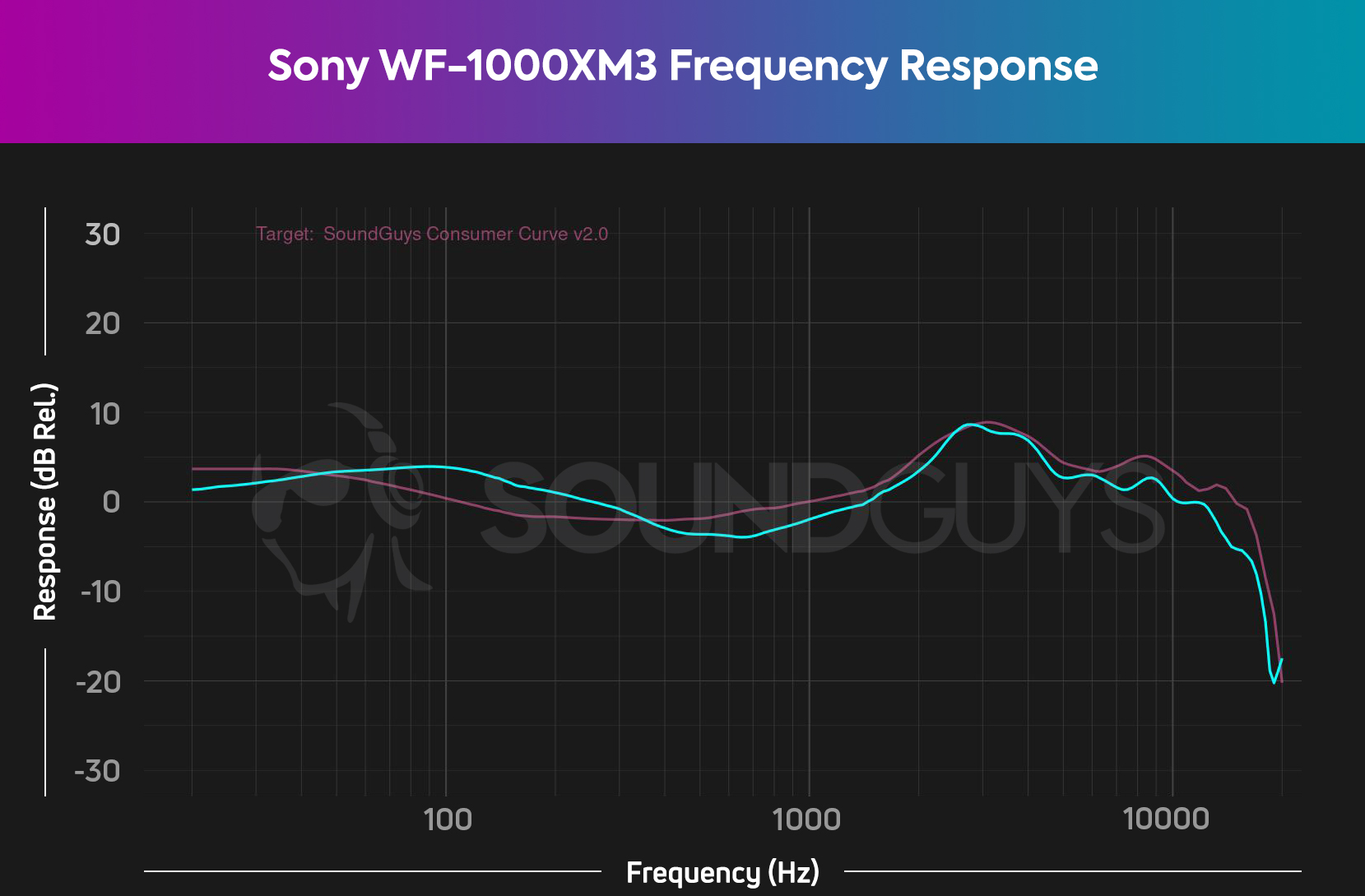
The WF-1000XM3 sounds great. Bass frequencies receive a bit of a bump, as do the mids. That way, vocal masking from low-end sounds is minimal as the frequency ranges are about the same loudness. Regardless of what genre I listen to, all instruments come through clearly. The highs somewhat mimic our house curve, while the bass and mids receive slight exaggeration.
Lows, mids, and highs
In Chastity Brown’s song Colorado, her vocals remain clear throughout the track. Even when a horse of instruments accompanies her voice during the 0:53 mids are clear. When she raises her pitch at the end of the word “follow” (1:14) is a bit hard to hear but you’ll only notice if you’re already familiar with the song. She stair-steps her pitch upward, and the last syllable becomes lost behind the drums. Thanks to the appropriate treble boost, it’s easy to hear the recurring tambourine hits during the choruses.
The Sony WF-1000XM3 boosts all the right frequency ranges with enough restraint to prevent overblown percussion and ear-splitting highs. I quite enjoyed the alterations over a neutral sound one may expect from studio cans. When using these on a four-hour flight, the exaggerated bass, coupled with the noise canceling and isolation, made it easy to hear a given song’s key elements.
Hold up! Something’s different:
We’ve been updating our testing, and the microphone demo for this article does not use our new standardized method. We have since purchased a Bruel & Kjaer 5128 test fixture (and the appropriate support equipment) to update our testing and data collection. It will take a while to update our backlog of old test results, but we will update this article (and many others!) once we’re able with improved sound quality measurements and isolation performance plots. These will be made obvious with our new chart aesthetic (black background instead of white).
Thank you for bearing with us, and we hope to see you again once we’ve sorted everything out.
Is the Sony WF-1000XM3 microphone good for phone calls?
The mic system is good enough for general use. The person on the other line can tell you’re using a headset, but voices are relayed well enough through both earpieces. My mom and friends never tell me that I’m inaudible. When I sit outside to take a call, my friends can hear the wind, traffic, and surrounding passersby though. Of course, you can determine for yourself if the microphone quality is passable for you. It may be fine for extended business calls; ensure you’re in a quiet space.
Sony WF-1000XM3 microphone demo:
Editor’s note: Sony released software update 2.1.0 on January 13, 2020, which improves hands-free call quality. Previous updates included Amazon Alexa support, onboard volume adjustments, connection quality improvements on iOS, and general stability improvements.
How do these sound to you?
Should you buy the Sony WF-1000XM3?
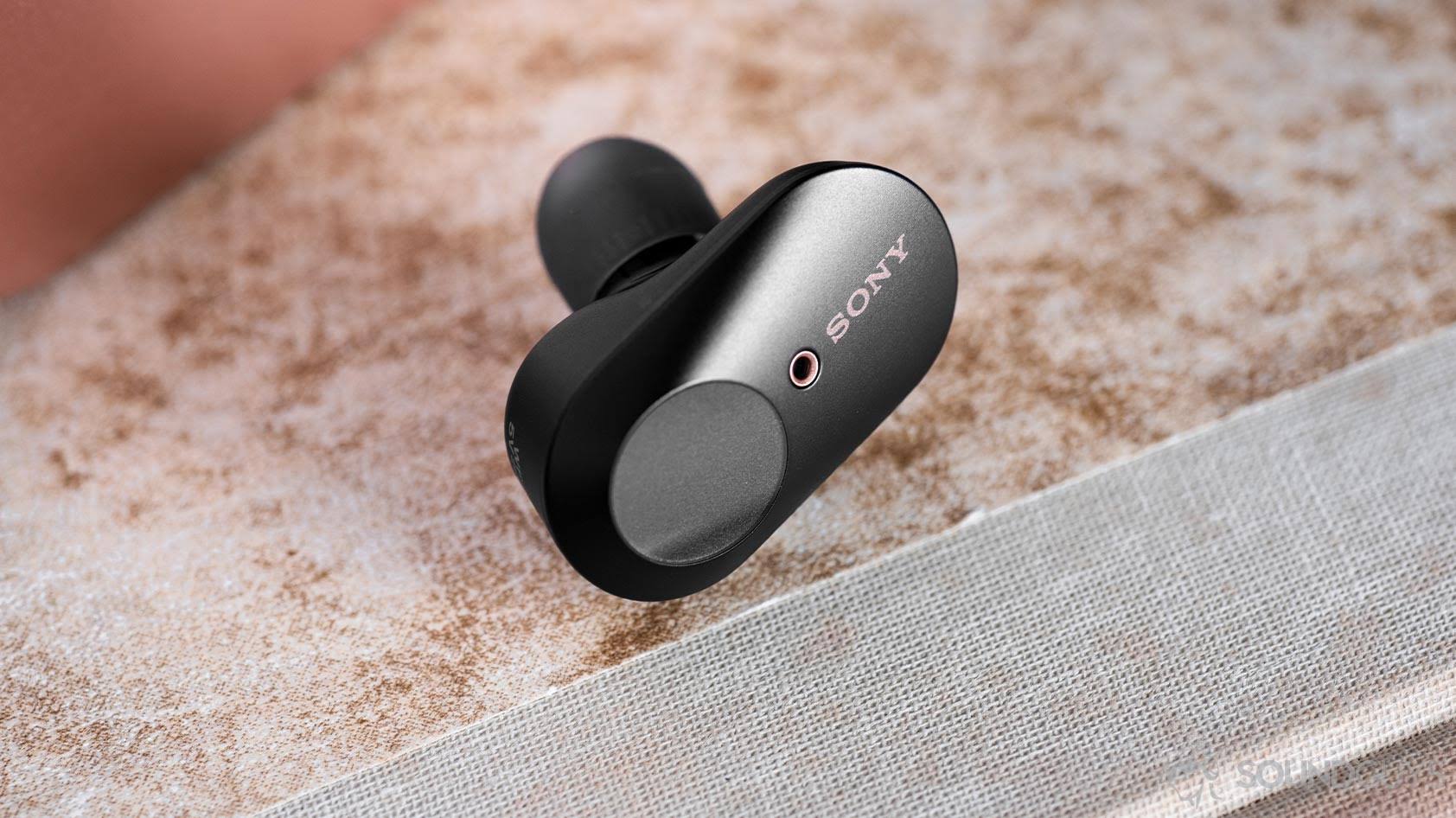
The Sony WF-1000XM3 is still a great option, and the lowered price sweetens the deal. If you want a solid set of true wireless earbuds that includes a stylish, though large, charging case, good sound quality, and comfortable fit, the WF-1000XM3 may be just right for you. Of course, availability will dwindle as this model has ceased production.
If you have the cash, the new Sony WF-1000XM5 ($298 at Amazon) solves virtually all of our gripes with the WF-1000XM3 and WF-1000XM4. It’s small, light, and runs circles around the older earphone models in the performance department. That said, it’s fairly expensive if you pay the total price.
You may also find that the Sony WF-1000XM4 is the better pick as its Bluetooth 5.2 firmware futureproofs it for a bit longer and supports LDAC, something sorely missing from the WF-1000XM3. Other standout new features include an IPX4 rating, much better ANC, and improved battery life.

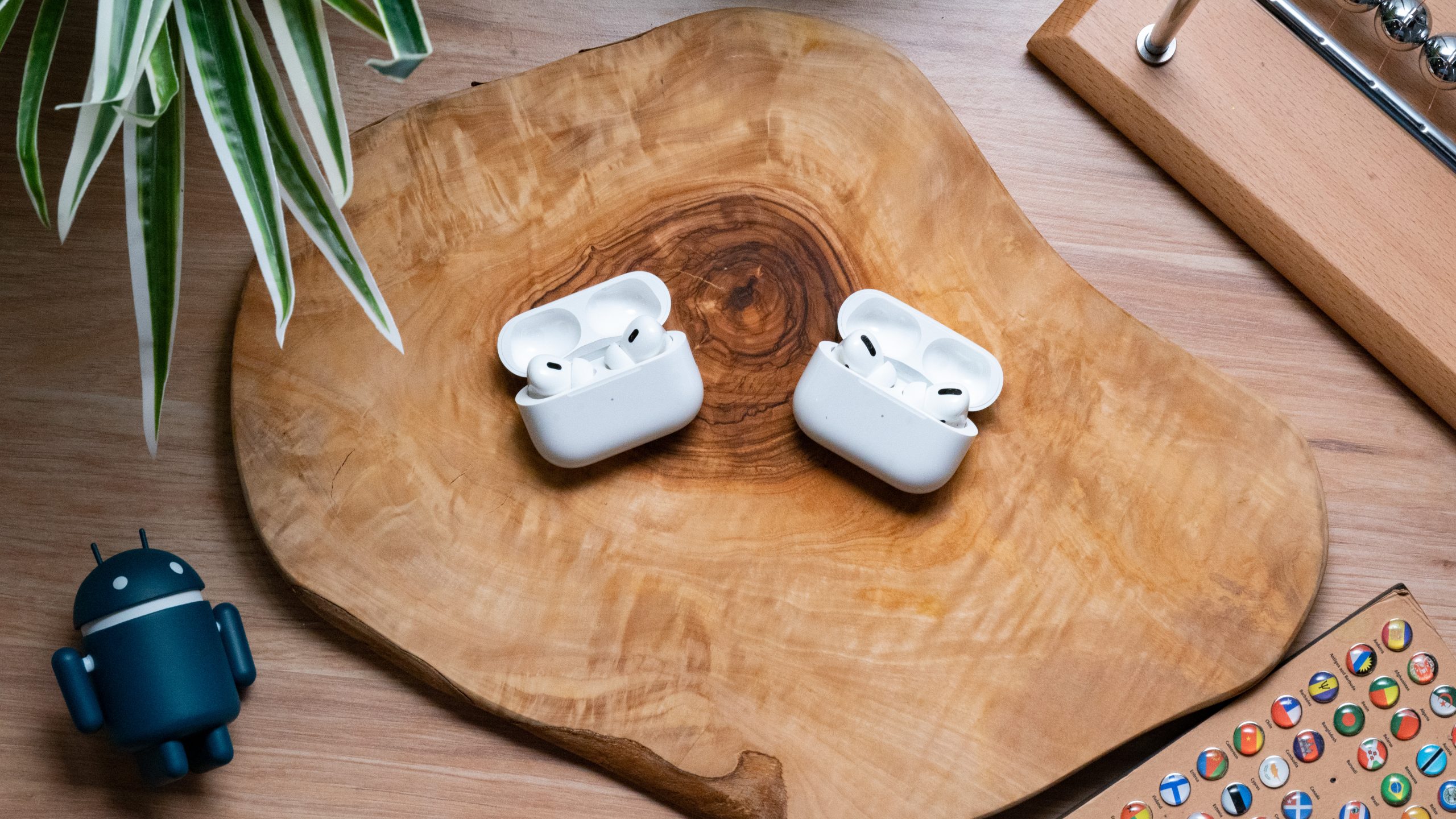
Apple has two versions of the AirPods Pro. The latest version (2nd generation) benefits from technological leaps, including vastly improved ANC. Its frequency response is also closer to our ideal curve than the WF-1000XM3. A more efficient H2 chip and newer Bluetooth version keep you futureproofed.
Our full-length versus piece reveals the Sony WF-1000XM3 to be the better earphones when compared to the Apple AirPods Pro (1st generation), but it comes down to personal preference. Unless ANC is your priority, in which case the AirPods Pro (1st generation) has the better noise canceling. Of course, if you wonder which AirPods Pro to grab, we’ve analyzed that too.
The Sony WF-1000XM3 still has much to offer, including good isolation and sound quality. However, iPhone users may have different priorities, such as ease of use. By remaining in the Apple ecosystem for all your technology, you benefit from the smoothest user experience. From initial pairing to switching between source devices, nothing compares to using Apple H1 or H2 chip products in tandem with one another.
What’s more, if you want to have the option to exercise with your earphones worry-free, either set of the Apple AirPods Pro is the better option for the IPX4-certification. Listeners who want better sound quality come up about even with matching sound quality scores of a very good 9.7.
A third option is the Amazon Echo Buds (2nd Gen), which retails for significantly less than Apple or Sony products. The Echo Buds use active noise canceling, which works surprisingly well in quieting external noise. Alexa integration makes it easy to control your smart home and read incoming messages aloud like Google Assistant or Siri does.
Consider the Bose QuietComfort Earbuds instead
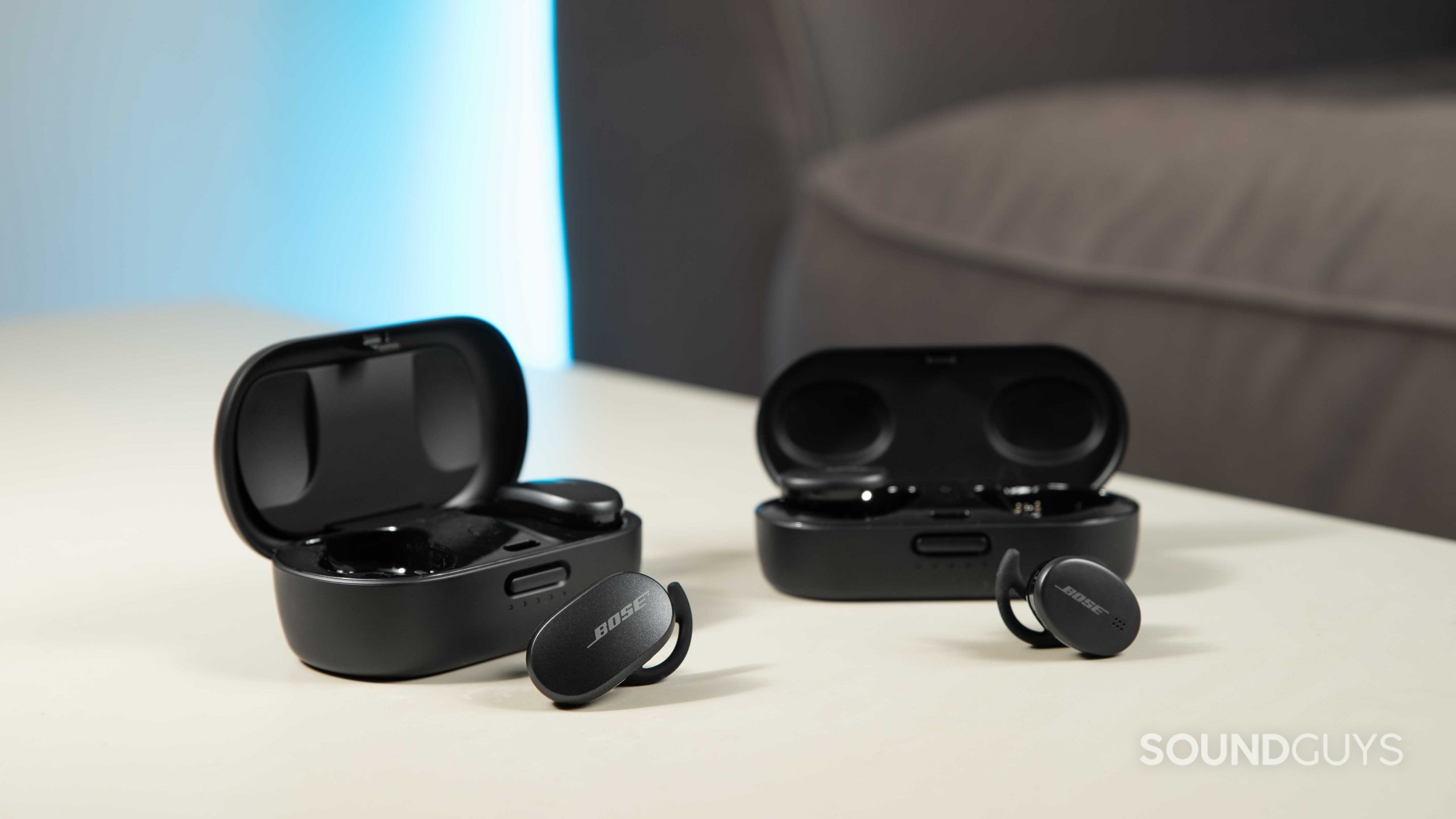
The Bose QuietComfort Earbuds are about as large as the Sony WF-1000XM3 and also feature noise canceling. The QC Earbuds sport a minimalist design inherited from the company’s premium ANC headphones, the Bose Noise Canceling Headphones 700 and Bose QuietComfort 45. If you don’t want to splurge on ANC tech, you can save quite a bit of money and space with the Sport Earbuds.
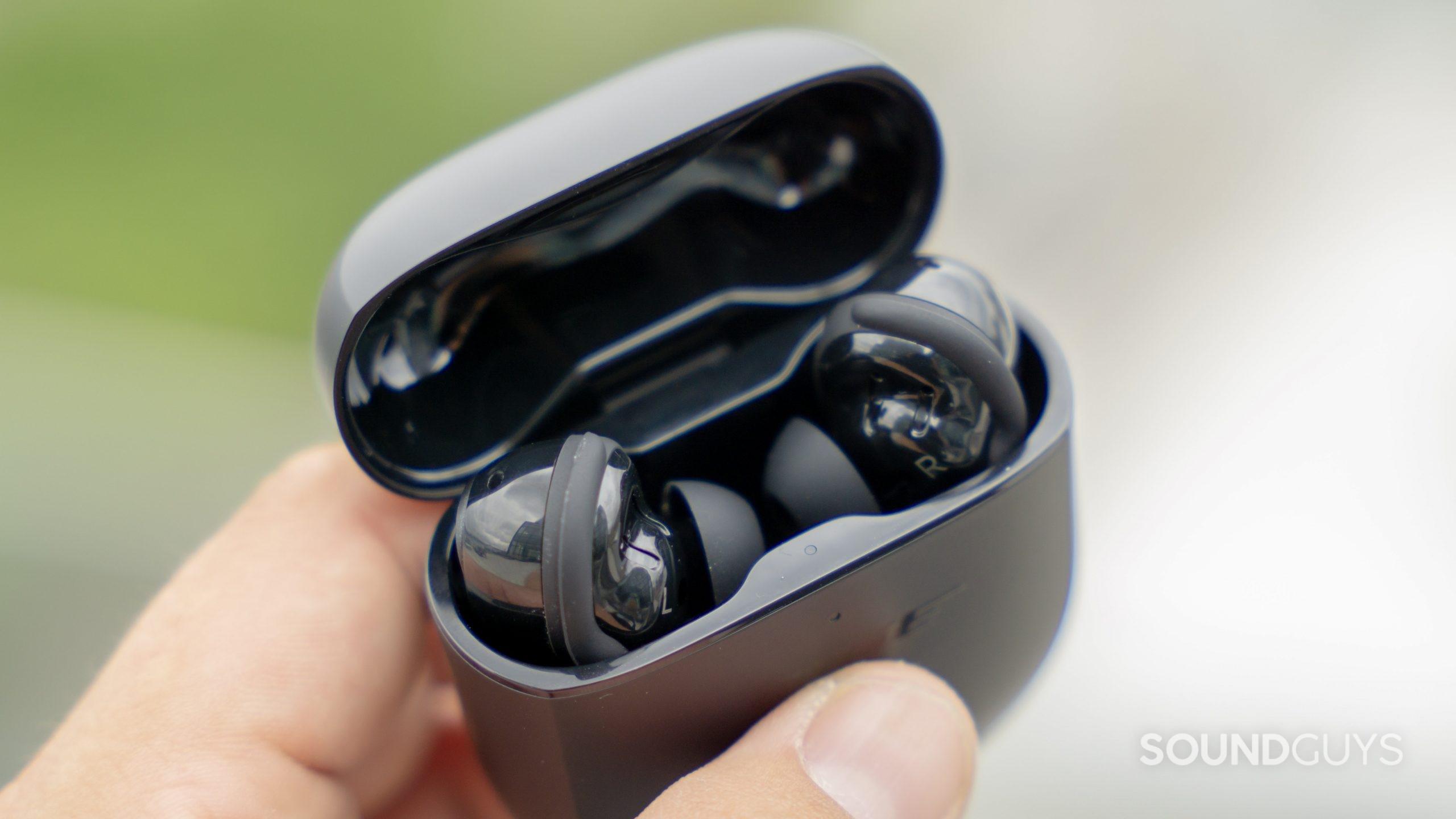
The Bose QuietComfort Earbuds II provides far better noise canceling than the older Sony WF-1000XM3. It also costs quite a bit more money to get the Bose buds. As far as sound quality goes, the WF-1000XM3 has a lot of tuning, whereas Bose went a little bonkers with the bass response. Bose does have an in-app equalizer, at least, as well as an IPX4 sweatproofing.
While the Sony WF-1000XM3 is getting a bit old, the QuietComfort Earbuds II doesn’t quite earn its price tag compared to the best wireless earbuds. Between the two sets, only get the QuietComfort Earbuds II if you’re concerned about ANC or that IPX4 rating.
The Sennheiser CX Plus True Wireless is a great option, too
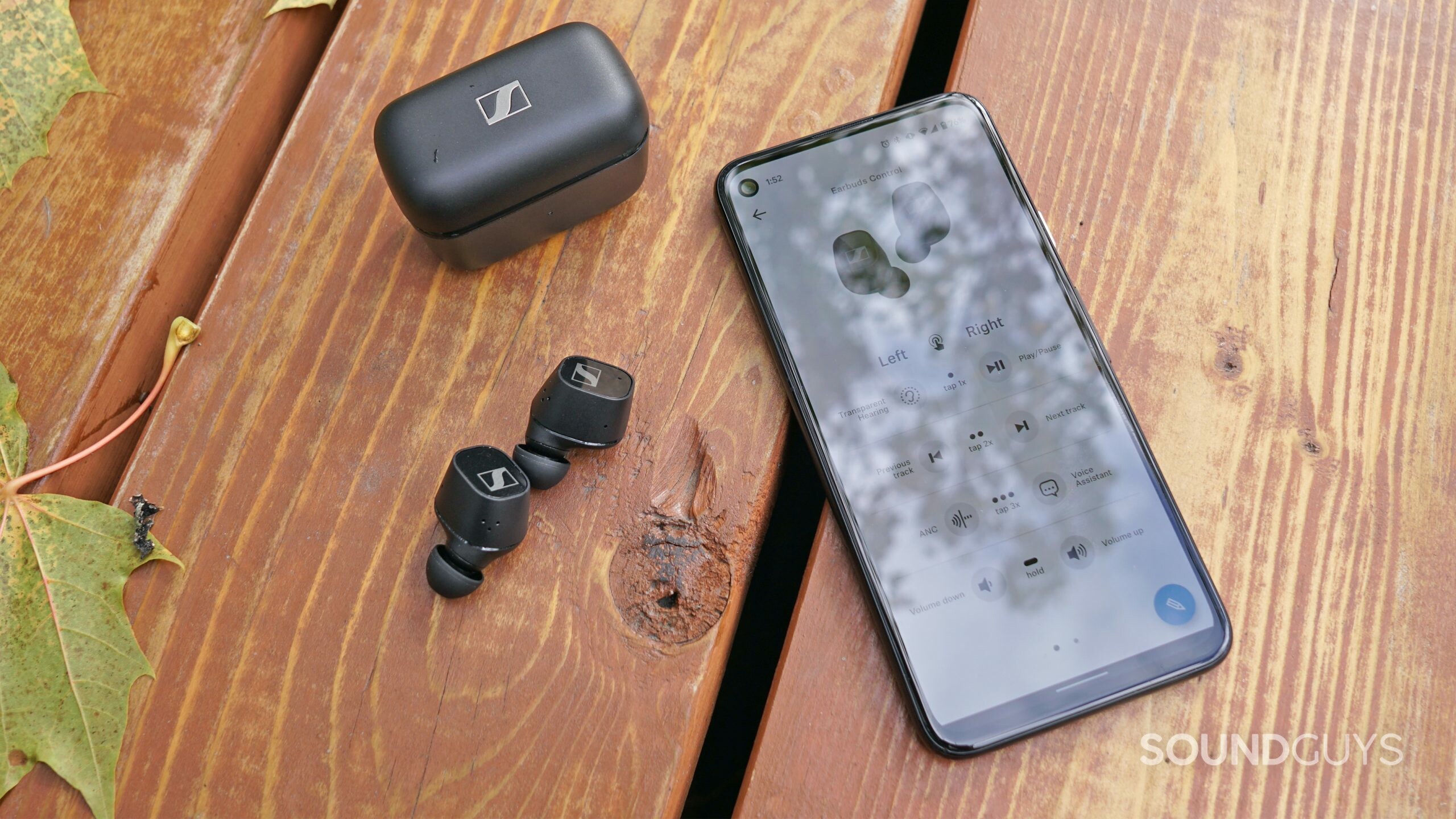
Try the more recent and budget-friendly Sennheiser CX Plus True Wireless. With newer tech, it has markedly better ANC than the WF-1000XM3. For the athletes out there, the IPX4 rating ought to keep the buds safe from sweat.
The CX Plus True Wireless sells for around the same price as the WF-1000XM3, but it offers features like the aptX codec for Android users looking for higher-quality audio. However, you don’t get the extra 360 Audio that the WF-1000XM3 has onboard, so if that’s a real selling point, skip the Sennheiser.
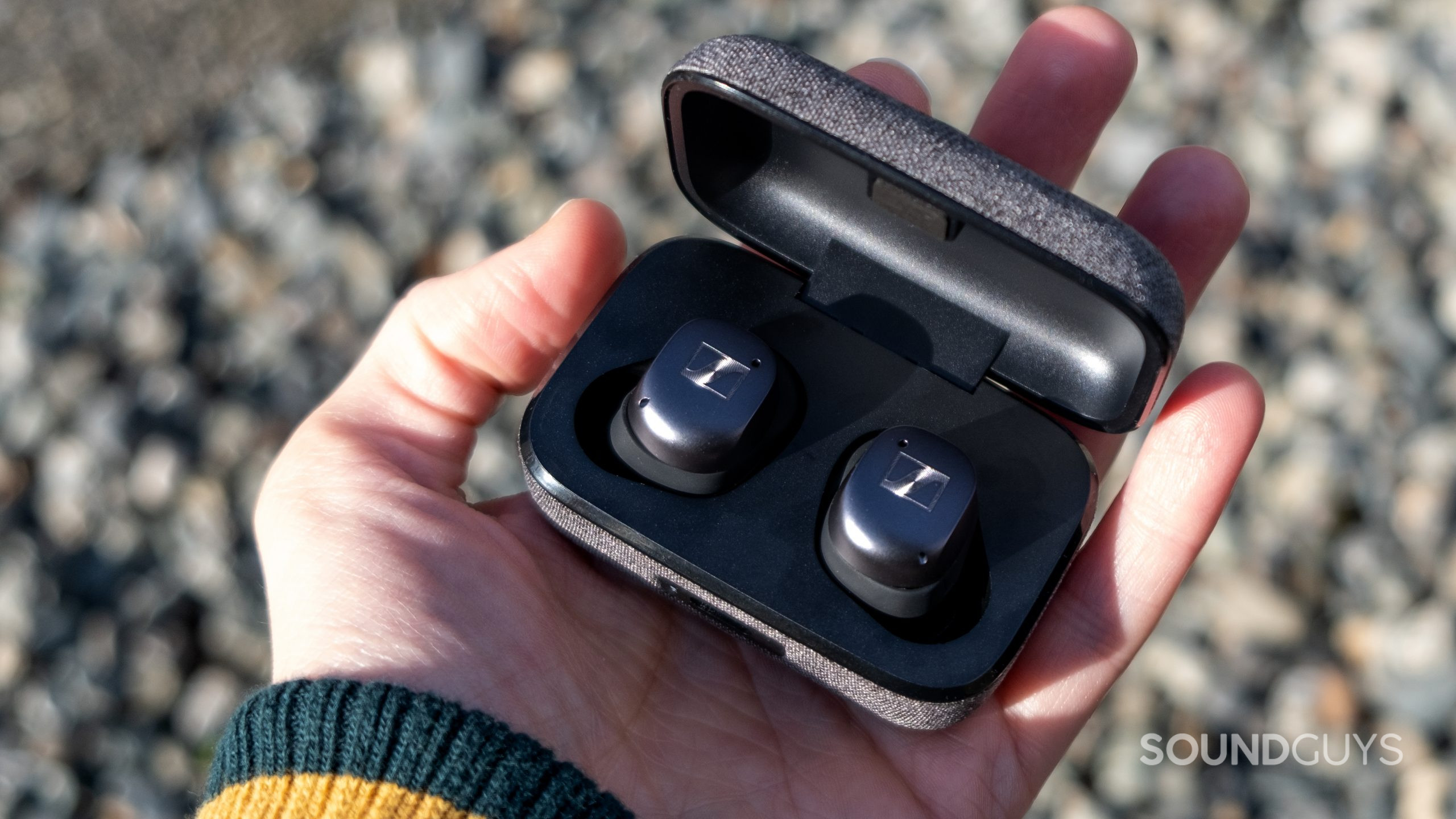
Sennheiser flagship, MOMENTUM True Wireless 3 is another excellent option. It has far better noise canceling than the WF-1000XM3, as well as a host of more premium features, including high-quality codecs like aptX and aptX Adaptive. Like the CX Plus True Wireless, the MOMENTUM True Wireless 3 does not have 360 Audio capabilities, but for the vast majority of music, it sounds excellent.
The Jabra Elite 4 Active is a great pair of workout earbuds
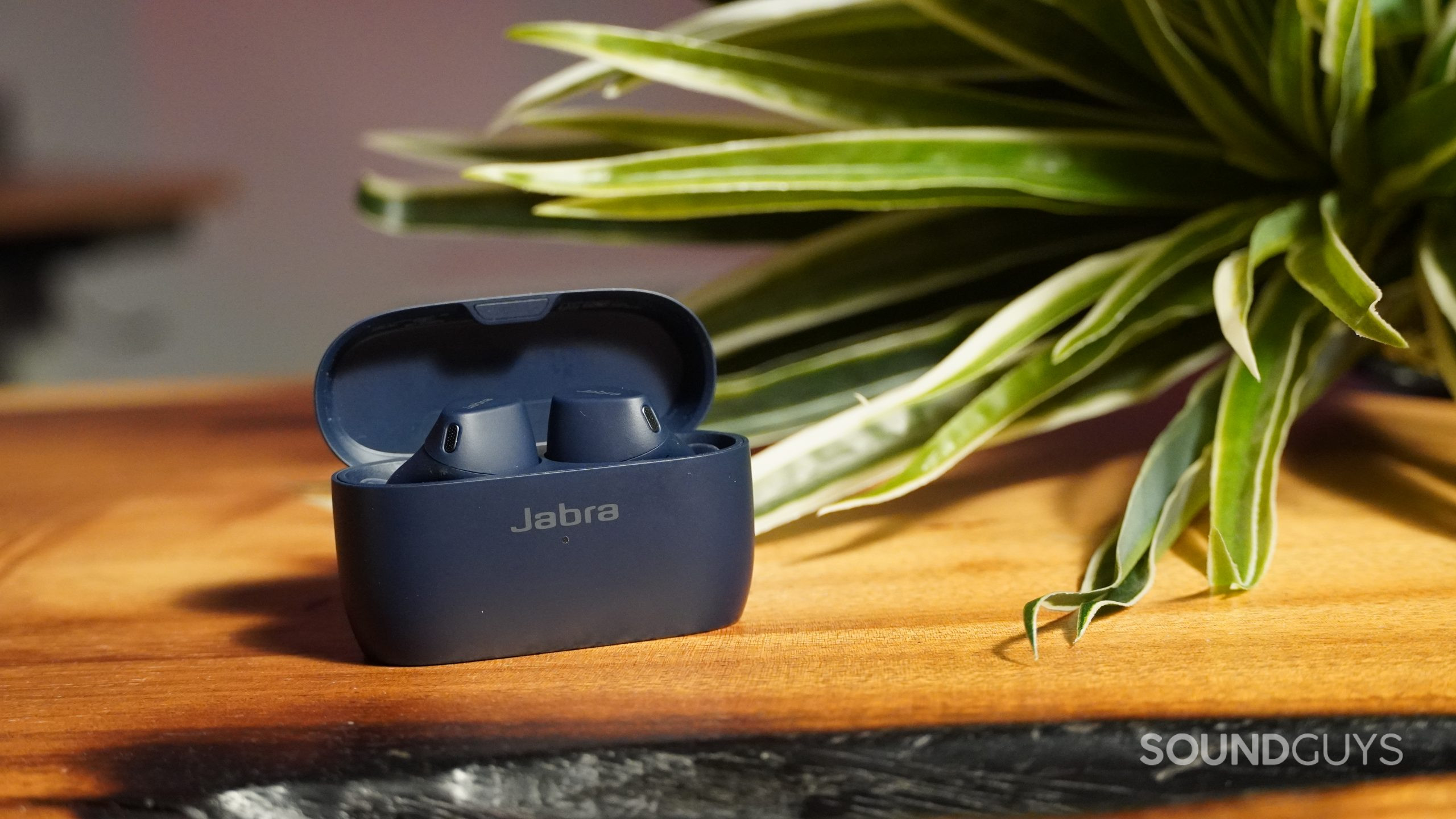
Finally, Jabra has been filling out its range with products like the relatively inexpensive Elite 4 Active, which packs a lot into an affordable package. It ships decked out with an IP57 rating, aptX (for Android, but no AAC for Apple), good ANC, and an excellent frequency response. If you don’t need noise canceling, check out the Jabra Elite 3.
All of these Jabra products have powerful sound customization via the Jabra Sound+ App for Android and iOS.
Apple iPhone owners may want the Jabra Elite 7 Active for its AAC codec (no aptX, though) and great sound. The ANC doesn’t displace the very best, but it’s still a contender and quiets the environment by up to 50% at 500Hz, for instance. A battery life of 7 hours and 10 minutes per charge is quite good, too, as is the IP57 rating.
It’s not the newest, but the Jabra Elite 85t still offers a solid IP57 build and good connection performance. You might find it discounted, making it worth your while.
Frequently asked questions about Sony WF-1000XM3
The Sony WF-1000XM3 earbud panels are about double the size of the Samsung Galaxy Buds Plus earbud touch panels. The Sony case is also much larger than that of Samsung.
Yes, though whether or not these will work well with your computer depends on its hardware.
360 Reality Audio is Sony’s approach to object-based spatial audio technology. In other words, it’s in-ear surround sound that delivers an immersive audio experience, as if you’re listening to music at a live concert. The Sony WF-1000XM3 supports this feature, though it is only compatible with select streaming services, including Tidal (HiFi subscription), Deezer, and nugs.net.
Yes, the Sony WF-1000XM3 works with any laptop or tablet device with Bluetooth. TVs are a different story, as not all support Bluetooth. If your specific TV model does, then yes, you should be able to go through the settings and connect to the earphones.
Yes! You can engage mono listening with the Sony WF-1000XM3 by removing just one earbud from the headset. The selected earbud will then connect to your previously paired device, and you can listen from bed or walk around while remaining aware of your surroundings.
Here’s our detailed rundown of how to clean any earbuds with removable ear tips. Adam walks readers through using the Apple AirPods Pro , but the process also works for the Sony WF-1000XM3.
To initiate pairing for the first time with the Sony WF-1000XM3, remove both earbuds from the charging case and make sure the LEDs on the housings are flashing blue. Enter your smartphone’s Bluetooth menu and scan for available devices. “WF-1000XM3” should appear as an option; select it and allow the devices to connect. If you’re pairing the headset to a new, secondary device, remove the earbuds from the case. Press and hold both touch panels for seven seconds; the left earbud will relay a notification saying, “Bluetooth pairing.” From here, you can do the same as before: enter your phone’s Bluetooth menu, search for a new device, and select the “WF-1000XM3.” This works with an iPhone or Android smartphone.
Unfortunately, the Sony WF-1000XM3 true wireless earbuds do not support multipoint connectivity, as they can only be connected to one device at a time. They can, however, “remember” up to eight devices; although you have to switch between devices manually, doing so should be rather immediate.
The case’s dimensions are as follows: 142 x 119 x 64 mm. Here is a picture of the case next to a Google Pixel 3 for reference. It can fit in a men’s pant pocket but won’t fit comfortably in most women’s pants pockets.
Yes! There’s no guarantee that your sweat or dust won’t get in. We’ve all had good luck with earphones at SoundGuys, but we prefer them to have IP ratings on the off-chance we have to RMA/repair them.
Yes, the earphones may connect to both Android and iOS devices. In order to make the initial connection, remove both earbuds from the charging case and open your device’s Bluetooth menu. Ensure Bluetooth is turned on and your source device is scanning for available devices. The Sony WF-1000XM3 should appear as an option, and when they do, click them in the menu.